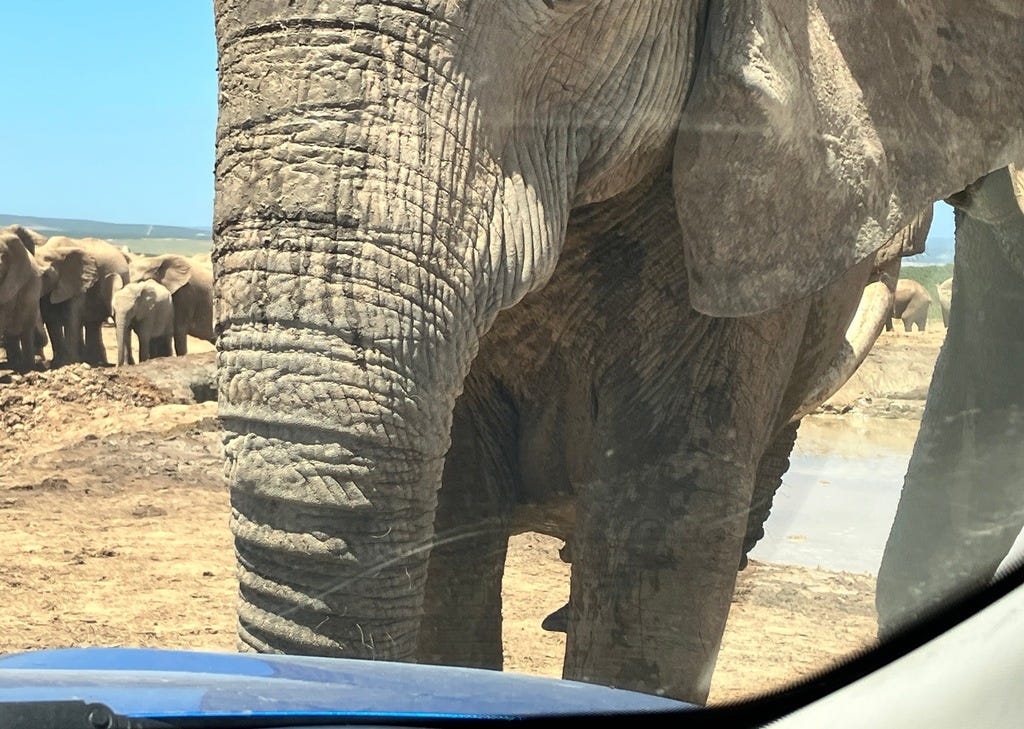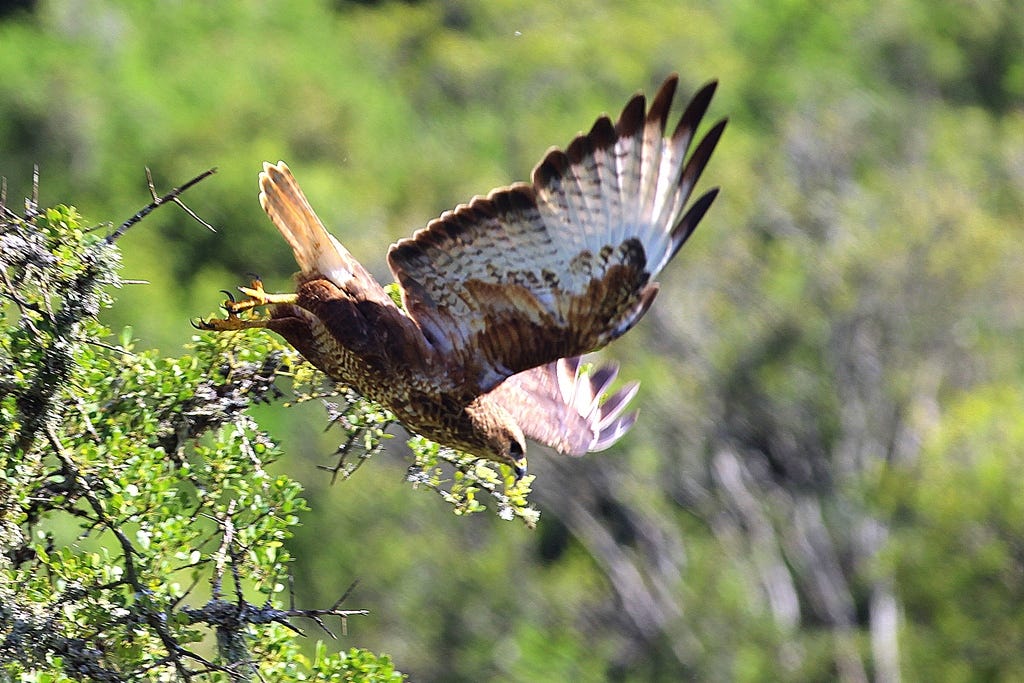Elephants in a rush can be exciting and but somewhat intimidating for visitors at the Addo Elephant Park. Video by Ilza Lang
There are of course many different types of safari: photographic, hunting, birding, hiking and several more sub-genres. One of the most obvious dividing lines is whether you have a guided safari, or is it a self-drive?
Ilza (honourable wife) and I almost always go on self-drive safaris – or ‘game drives’ as we like to call them. There are several reasons for our choice. First of all, on a self-drive there is no one else in the car, so you can stop, turn around or proceed, as, and when you please. Of course, always respecting park regulations. You don’t have to worry that someone in your vehicle might be getting bored and want to move along, or insists on spending 45 minutes staring at a mousebird that you’ve seen many times before. You are your own boss.
Another good reason to wing it alone is that it costs considerably less. Game rangers or field guides usually drive around in specially adapted vehicles (or cruisers, as the in-crowd say) and often they have a tracker up front to spot the animals for you. Combined, the cruiser, the tracker and the ranger are very effective but they all cost a lot of money.
On a self-drive you are not permitted to drive off the road. This can be a huge disadvantage if you have seen a leopard or an aardvark scurry off behind a bush only a few metres off the road. You may not follow it nor attempt to get a better view by going off the road to approach from the other side.
It’s there, but the road isn’t. It’s not far away at all, but you won’t see it.
A guided safari can be a wonderful experience especially if the guide, or ranger makes an effort to accommodate your particular interests. It also makes a difference if you enjoy the ranger’s company. Does he regale you with interesting wildlife anecdotes or maybe he is too chatty for you. Perhaps he is telling you stuff you already know – a ranger’s version of mansplaining. Personal chemistry can be important.
I recently had a chat with a guide who was working at the Lalibela Private Game Lodge about 30kms from my hometown, Makhanda. Craig Wale is a highly qualified guide with amazing knowledge of flora and fauna gathered during his many years working at Lalibela.

Even after doing the job for so long he is still passionate about his chosen profession. He loves taking people for game drives and his enthusiasm is always bubbling over.
On the odd occasion, I have day-dreamed about being a field guide. So I asked Craig what were the most important qualities one needs to become a game ranger. He answered without hesitation, “People skills”.
“That is hands-down one of the most important qualities you need”. He stressed that even though you’re out in the bush watching animals, and it is important to understand the wildlife, it is far more important to understand his guests.
I put this same question to two female game rangers at a social occasion on Lalibela and they answered in unison, “Social skills”.
Craig said that their main job as field rangers, or rather field guides as they are now designated, is to deal with people. Field guides are with guests for a minimum of six hours per day. These people want to experience nature, but each person understands that experience in a different way.
If ‘people skills’ is the most important quality for a field guide, I asked Craig if he could think of some instances where he’d had to use his people skills.
He said the big challenge is attending to the wide variety of expectations, “So, I think one of the big things is specifically dealing with international tourists, you get people of all different nationalities, different cultures, different races, different religions and so it is important to empathise with people and respect their lifestyles, their backgrounds”.
Craig said he has to take into consideration the different levels of exposure that guests have had to wildlife experiences. Some have been on safaris many times and are very knowledgeable about animals and birds, while others might be going into the bush for the first time in their lives.
Some guests are only mildly curious about animals, some prefer bird watching, while others only want to tick the boxes of the big five (lion, leopard, rhino, elephant and buffalo).
“OK, we’ve seen a lion. What’s next on the list?”.
Craig believes that his experience is important as it helps him ‘read’ people. He always tries to find a balance, “understanding what people's different needs are and also understanding how comfortable people are”.

Guests who have been on safari many times are a lot more comfortable with wild animals. Whereas someone who is seeing a big bull elephant up close for the first time might get a bit anxious and nervous. A field guide should balance proximity to the animal with the comfort of his or her guests.
While all three field guides I spoke to stressed the importance of social skills, they all added that of course, profound knowledge of wildlife and the environment is absolutely essential – but that can be learned.
Different strokes for different folks - My perspective
Personally, one of my most enjoyable safari experiences was at the Kwandwe Private Lodge. Our field guide, Ryan is a talented professional photographer. He regularly puts his fabulous photos up on the Kwandwe website and Facebook page. When he took us to a special sighting, he parked the cruiser in an ideal spot for the best lighting and angles. He was also happy to give advice on camera settings and what to look out for.
In my view, Ryan is a perfect field guide – thinking like a professional photographer without babbling on all the time.
I also enjoy a game drive with a guide who knows a lot about birds - how to identify and photograph them. It’s not easy to take good photos of birds. They’re small, skittish and fast moving. You really should have a long lens, a really long lens, maybe a 600mm, but I sometimes rise to the challenge with my 70-200mm.

Furthermore, I’m not good at identifying birds because I’m partially colour-blind. Well, that’s my excuse anyway. For these reasons, I appreciate a guide who is able to confidently put a name on a bird. It is so much more satisfying.
Do you have any interesting stories about your experiences with field guides? Let us know by leaving a comment. Real Safari would love to hear from you.





